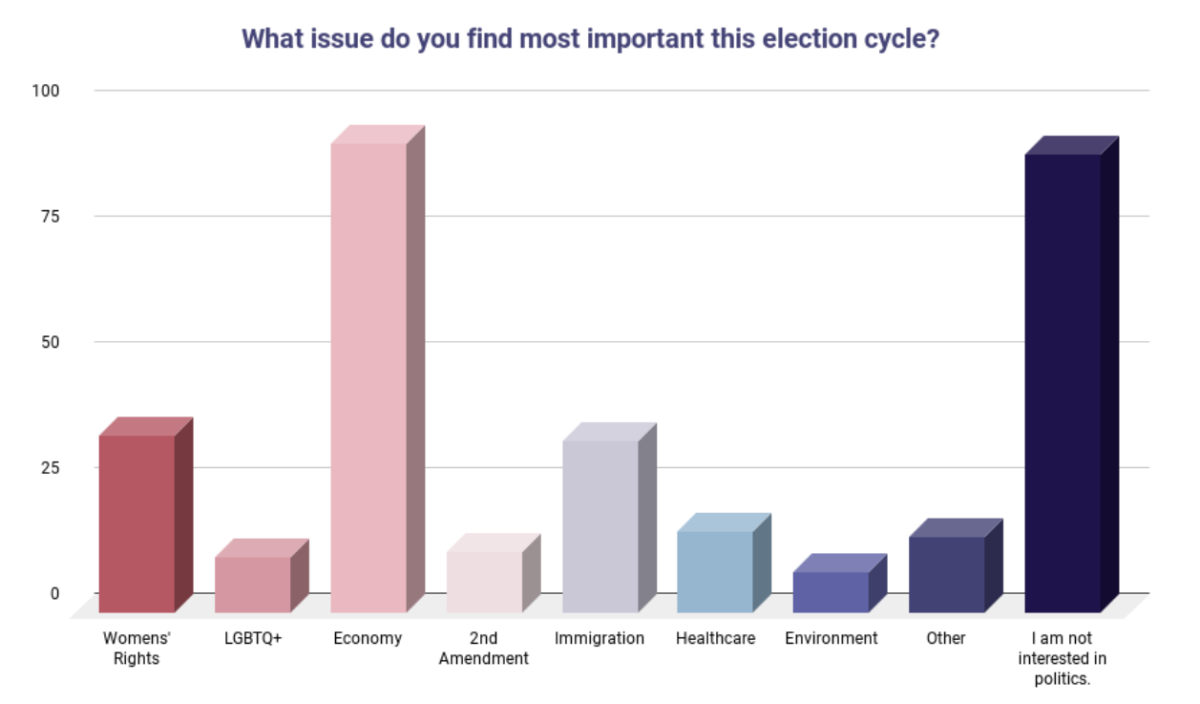During her middle school years, junior Ali Williams* could not go to sleep until she felt her rib cage. She would lie on her bed and trace slender fingers along her flat stomach searching for the contours of her ribs. She would rejoice with the feel of the bony structure jutting from her body beneath her fingertips. Pleased with her success, Williams would then be able to sleep. She believed in her mind that she was doing something right. She was one step closer to being skinny – to being beautiful.
Williams suffered from anorexia, an eating disorder that involves an obsessive desire to lose weight through starvation. Most often, people afflicted with anorexia see their bodies as distorted and overweight, but they are actually skinny.
Her disorder began near the end of sixth grade when she noticed the evolving bodies of her fellow classmates at her middle school. She began comparing herself to the other girls and decided her weight was a problem, though she had never actually been overweight.
She saw losing weight as a challenge. How many days could she go without food? How many pounds could she lose in a week?
“For other girls, it’s literally they look at themselves in the mirror and see themselves big,” Williams said. “I didn’t see that, I just saw everything I could fix. It was if I was in a mirror next to them, who would win the skinny contest?”
It was an ordinary morning at middle school for Williams when she walked into the building wearing her normal every day outfit. She wore her 00 jeans that she jokingly now calls her “marker jeans” because those were the smallest jeans she owned and a baggy sweatshirt loosely hung about her upper body, not revealing any skin. She heard students whispering near her. She knew they were talking about her. Almost every student in the middle school knew about her anorexia. Williams said she hated the gossip that gave her a “negative rep” and didn’t want people to think of her as the “messed-up girl.” At the same time she liked that her classmates knew about her disorder. It meant they noticed she was skinny.
Food cluttered tables in the crowded middle school cafeteria later that day. Williams sat at a lunch table and watched her friends eat while she ate nothing.
“Ali, why don’t you eat? You’re such a fatty!” They laughed. They all knew about her disorder. Being in middle school, they just didn’t know how to handle it, and Williams said she was often hurt by their jokes.
“You don’t know how much power words have on someone in that kind of circumstance,” Williams said.
That night when Williams arrived home from school, her mom placed a hot dinner on the table in front of her. Carefully picking at the food, Williams waited until her parents had gone from the room to make her stealthy escape. She then threw her uneaten meal in the neighbor’s trash can.
“The deceit to my family was the most painful,” Williams said. “They didn’t know half the stuff I was doing, and they still don’t know all the stuff I did.”
Later that night, Williams waited until her parents were asleep until she slipped on baggy workout clothing and proceeded with her daily exercise. She would secretly run two miles and swim laps around her pool almost every night. She constantly exercised to lose the weight that she couldn’t lose by just not eating.
“I was killing my body essentially,” Williams said. “It’s sickening.”
After her strenuous workouts, Williams stood in front of her mirror and stared at the reflection of her body. “You’re not hungry, you’re not hungry,” she chanted. Eventually, Williams said if she told herself that enough times, she wouldn’t be hungry. It was all a mental game.
“I would look in the mirror and be like, ‘Do you want this to keep going? Or do you want to lose all this?’ And I wouldn’t be hungry,” Williams said.
It took until the beginning of freshman year for Williams to recover from her disorder. With the help of her mom and her friends, Williams said she realized she needed to stop starving her body.
“It became all of me and it ruined my friendships because I wasn’t able to give all of myself to them,” Williams said. “I was so selfish. I was putting them in deliberate pain when I could’ve done the bigger thing and gotten help.”
While recovering, Williams said every time she ate food, it hurt emotionally, but all that mattered was that she had made herself eat. Even now, Williams said that the wound her middle school years and anorexia gave her self-esteem will never be completely gone. Still, she worked hard to recover. Her mom helped her hide the scale and her full-length mirror to prevent her from weighing herself.
“I’ve learned to be able to fight the demons and tell myself, ‘you’re a beautiful person,’” Williams said. “I keep telling myself that hoping one day…I’ll have nothing to worry about when I look in the mirror. The mirror is the enemy.”
***
Williams now lies on her bed and glances at her horizontal reflection in the full-length mirror hanging on the door. She looks at the bulletin board hanging on her green walls covered with pictures of her and her high school friends. In every photograph, Williams grins widely with arms slung over friends’ shoulders. She studies the photographs and her friends’ faces. Williams said if not for her friends she had this year, she would have relapsed. She closes her eyes and remains silent for a moment.
“I wish I had the friends in middle school that I have now,” Williams said. “I wish people cared enough to actually intervene. If you don’t have those people, then you’re going to go down that path. So stop with the popularity contest and find genuine, real people who care about you.”
*names have been changed




